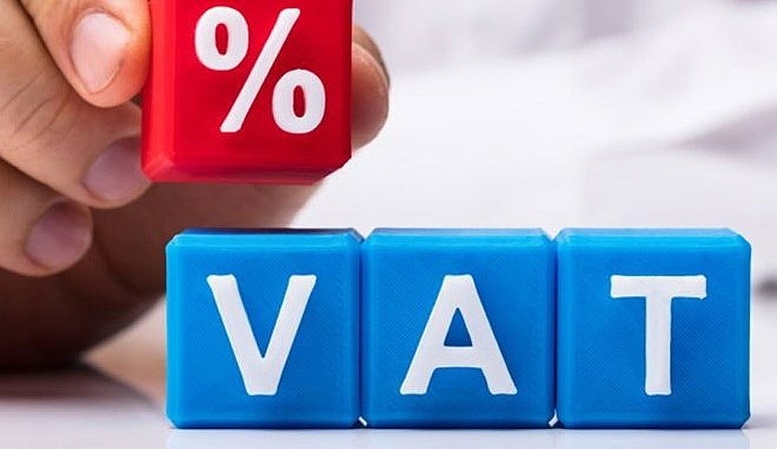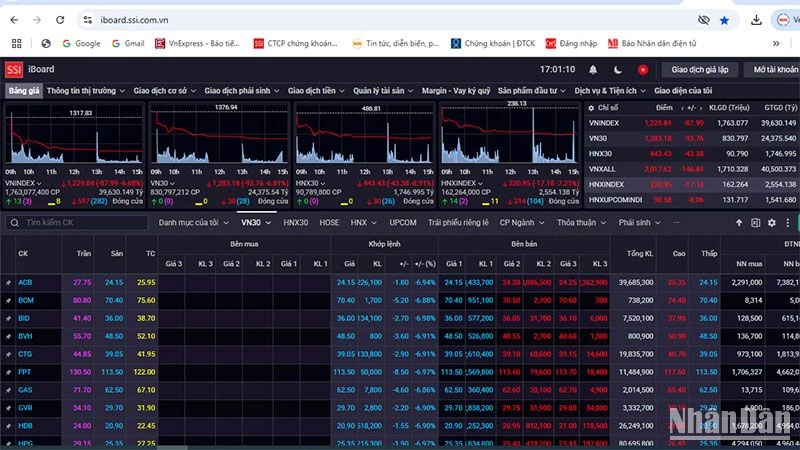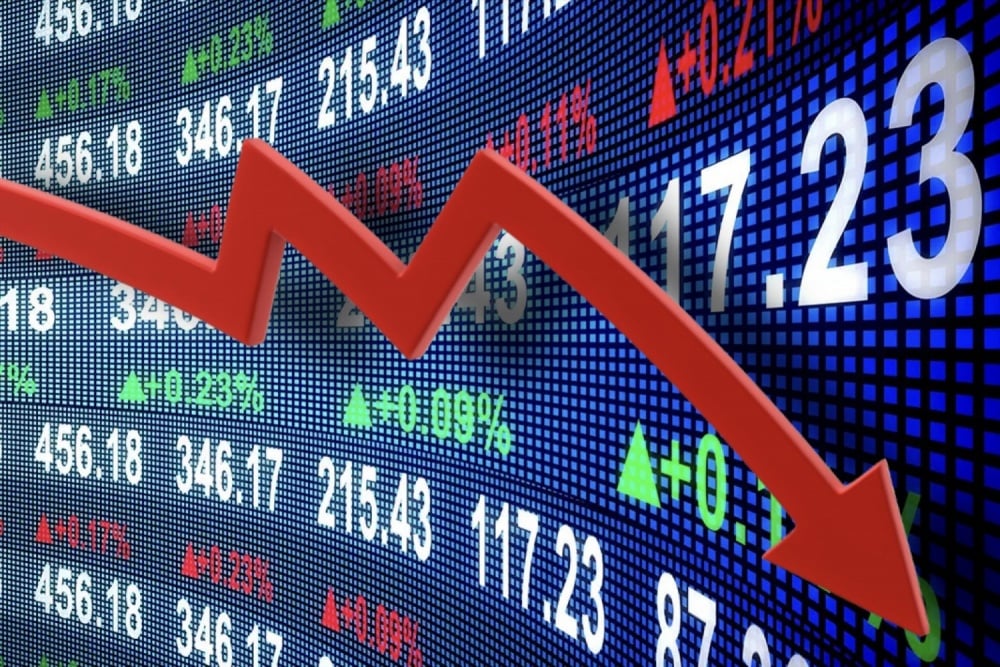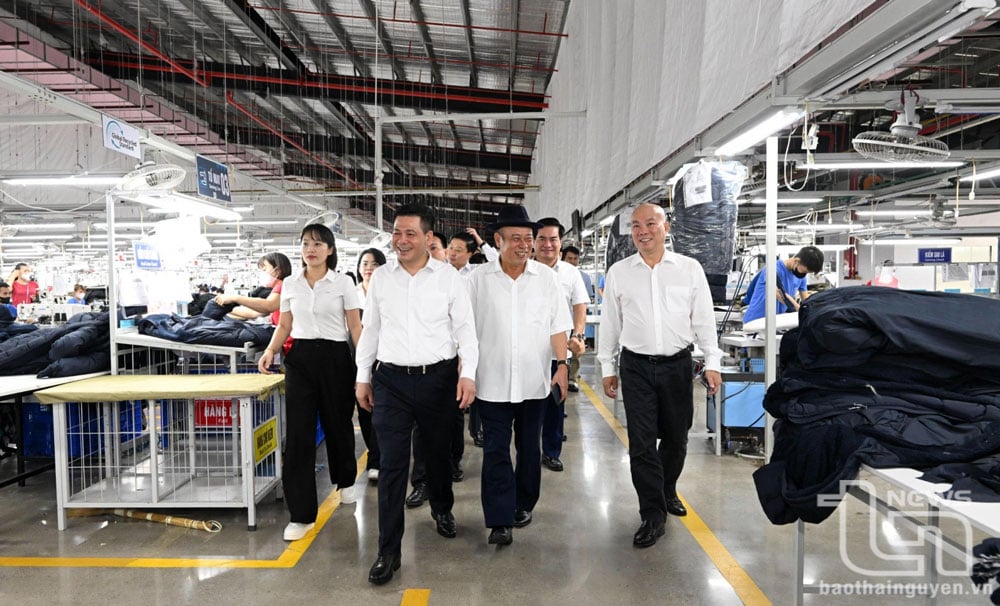In the latest draft of the revised Law on Value Added Tax (VAT), which is being consulted, the Ministry of Finance proposes that the threshold for VAT taxable revenue for individuals and business households is VND150 million, an increase of VND50 million compared to current regulations.
Many agencies and localities have proposed raising this revenue level to 250-300 million VND.
Specifically, after consulting businesses and experts, the Vietnam Federation of Commerce and Industry (VCCI) assessed that raising the threshold for non-taxable revenue of households and individual businesses from VND100 million/year to VND150 million/year will help many individuals and small business households not have to declare and pay taxes.
However, according to many businesses, the taxable revenue threshold of 150 million VND/year is still relatively low. Especially when comparing between business individuals and salaried individuals, the unreasonableness is seen. Because currently, salaried individuals have a family deduction for cases without dependents of 132 million VND/year, if there is one dependent it is 184.8 million VND/year and if there are two dependents it is 237.6 million VND/year.
“With the assumption that on average each employee has one dependent, the taxable income threshold for salaried employees is currently higher than the value-added tax threshold for individual business owners. Not to mention, in order to have revenue, individual business owners will have to incur input costs while personal income does not include these costs,” VCCI stated.
In addition, different sectors have different cost structures and tax rates, even though they may have the same revenue. For example, in the commodity trading sector (such as retail stores, grocery stores), input costs account for a large proportion of revenue, the income that individual businesses enjoy is not large and the tax collected is only from 1.5 million VND/year. In the service sector, input costs are insignificant, the value added is larger and the tax payable is higher, at least 7.5 million VND/year.
“For those reasons, the drafting agency should consider amending the regulations on the taxable revenue threshold of business households and individuals by considering raising the taxable revenue to about 180 to 200 million VND/year. At the same time, consider classifying by industry similar to Article 12.2.b of the Draft on the method of calculating direct tax, for example, the distribution and supply of goods industry has a higher threshold than the service and construction industries…”, VCCI suggested.
Meanwhile, the Vietnam Tax Consultants Association (VTCA) proposed a threshold of 180 - 240 million VND. Because according to Decree 07, the income standard for poor households in rural areas is currently 1.5 million VND/person/month, and in cities it is 2 million VND/person/month. Thus, a person with an annual income of 18 million VND is "poor and near-poor".
“If based on the VAT tax table, assuming the commercial business sector has a tax rate of 10%, the income will be calculated to be around 10 million VND. That is, after a business process of earning 100 million VND, the added value is 10 million VND. With 150 million VND, the income is 15 million VND,” VTCA calculated.
At a higher level, the Ministry of Transport proposed to exempt VAT for households and individuals doing business at 250 million VND/year, equivalent to about 10,000 USD/year, while Quang Ngai province also proposed this figure to be under 300 million VND/year.
Explaining the reason for not raising the tax threshold to 250-300 million, the Ministry of Finance said that the draft Law proposed to raise the revenue of households and individuals doing business from 100 million to 150 million. This proposed level is based on the inflation index and the actual situation (if based on the inflation index, the taxable revenue threshold is only about 130 million VND, however, to support households and individuals doing business, the Ministry of Finance proposed to raise it to 150 million VND).
"Raising the tax reduction for business households to VND250 million will affect local budget revenue, especially in localities with low revenue," the Ministry of Finance explained.
Besides, this regulation will not encourage households and individuals to change their business to enterprises (enterprises must pay VAT for every revenue they generate).
Accordingly, this agency proposes to keep the proposed level in the draft Law.
Wisdom
Source


![[Photo] Prime Minister Pham Minh Chinh chairs meeting after US announces reciprocal tariffs](https://vstatic.vietnam.vn/vietnam/resource/IMAGE/2025/4/3/ee90a2786c0a45d7868de039cef4a712)
![[Photo] General Secretary To Lam receives Japanese Ambassador to Vietnam Ito Naoki](https://vstatic.vietnam.vn/vietnam/resource/IMAGE/2025/4/3/3a5d233bc09d4928ac9bfed97674be98)
![[Photo] A brief moment of rest for the rescue force of the Vietnam People's Army](https://vstatic.vietnam.vn/vietnam/resource/IMAGE/2025/4/3/a2c91fa05dc04293a4b64cfd27ed4dbe)
![[Photo] Moment of love: Myanmar people are moved to thank Vietnamese soldiers](https://vstatic.vietnam.vn/vietnam/resource/IMAGE/2025/4/3/9b2e07196eb14aa5aacb1bc9e067ae6f)

![[Photo] Special relics at the Vietnam Military History Museum associated with the heroic April 30th](https://vstatic.vietnam.vn/vietnam/resource/IMAGE/2025/4/3/a49d65b17b804e398de42bc2caba8368)














![[Infographic] Government bond market March 2025](https://vstatic.vietnam.vn/vietnam/resource/IMAGE/2025/4/3/e13239cdbcfd4968abc836c201204c43)











































































Comment (0)